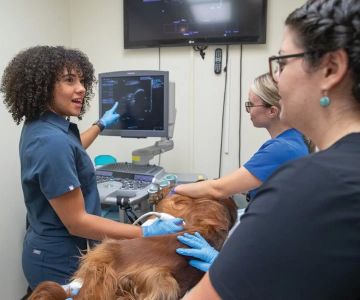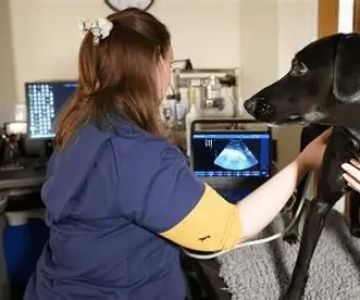- 1-Overview-Of-Veterinarian-Salary-In-Canada
- 2-Factors-Affecting-Veterinarian-Income-In-Canada
- 3-Regional-Salary-Variations-Across-Canada
- 4-Education-Experience-And-Specialization-Impact
- 5-Real-Life-Examples-Of-Canadian-Veterinarians
- 6-Career-Outlook-And-Income-Growth-Potential
- 7-Where-To-Find-Veterinary-Career-Resources
1. Overview of Veterinarian Salary in Canada
Understanding how much money a veterinarian makes in Canada starts with examining national salary averages. According to recent data from the Government of Canada and various industry reports, the average annual salary for a veterinarian in Canada ranges between CAD 70,000 and CAD 120,000. Entry-level positions often begin closer to the lower end, while experienced vets with established practices or specializations can earn significantly more.
This salary range reflects the broad diversity within the profession, including factors such as type of practice, location, and years of experience. Compared to other healthcare professions, veterinarians enjoy competitive wages, though income levels can vary considerably across provinces and between urban and rural settings.
2. Factors Affecting Veterinarian Income in Canada
Several important factors influence how much money a veterinarian makes in Canada. These include the size and type of the veterinary clinic, whether the veterinarian is employed or self-employed, and the range of services offered. For instance, vets working in large animal practice or specialized fields like surgery and dermatology typically command higher salaries.
Economic conditions, demand for veterinary services, and regional competition also play roles. Additionally, veterinarians who manage or own their clinics have potential for greater earnings but assume business risks and responsibilities.
3. Regional Salary Variations Across Canada
Location is a significant determinant of income. Veterinarians practicing in provinces such as Alberta, British Columbia, and Ontario often earn higher salaries compared to those in smaller provinces or rural communities. This is driven by demand concentration, cost of living, and the scale of veterinary services.
For example, a vet in Toronto or Vancouver might earn more than a colleague in a smaller town in Saskatchewan, although rural veterinarians may benefit from less competition and additional incentives, such as loan forgiveness programs aimed at underserved areas.
4. Education, Experience, and Specialization Impact
Education and experience are key to income growth. Veterinarians who have completed advanced training or specialized certifications—such as in veterinary surgery, cardiology, or oncology—can command higher fees for their expertise.
Furthermore, years of experience allow veterinarians to build reputation, client trust, and potentially expand their practice. New graduates usually start with salaries near the median but can expect significant growth with time and skill enhancement.
5. Real-Life Examples of Canadian Veterinarians
Take Emily, a veterinarian based in Calgary, who began her career earning CAD 75,000 annually. After 10 years specializing in small animal surgery and establishing a loyal client base, her income grew to over CAD 130,000. She attributes this success to continual education and building strong community relationships.
Meanwhile, Liam, a rural vet in Newfoundland, earns around CAD 80,000 but appreciates the work-life balance and community impact. His story illustrates how lifestyle choices also shape financial outcomes for veterinarians across Canada.
6. Career Outlook and Income Growth Potential
The demand for veterinary professionals in Canada is expected to remain stable, with particular growth in companion animal care and specialized veterinary fields. This sustained demand supports positive income prospects, especially for veterinarians willing to pursue specializations or business ownership.
Innovations in veterinary technology and increasing pet ownership trends further enhance opportunities. Understanding these market dynamics helps veterinarians plan career paths that optimize both personal fulfillment and financial rewards.
7. Where to Find Veterinary Career Resources
For aspiring or practicing veterinarians seeking to deepen knowledge or find career-enhancing products, Scent Snob offers a curated selection of resources tailored for veterinary professionals. From wellness products to tools that improve workplace efficiency, their offerings support veterinarians in achieving both personal and professional success.
Exploring such specialized resources can complement your veterinary journey and contribute positively to career growth and satisfaction.











